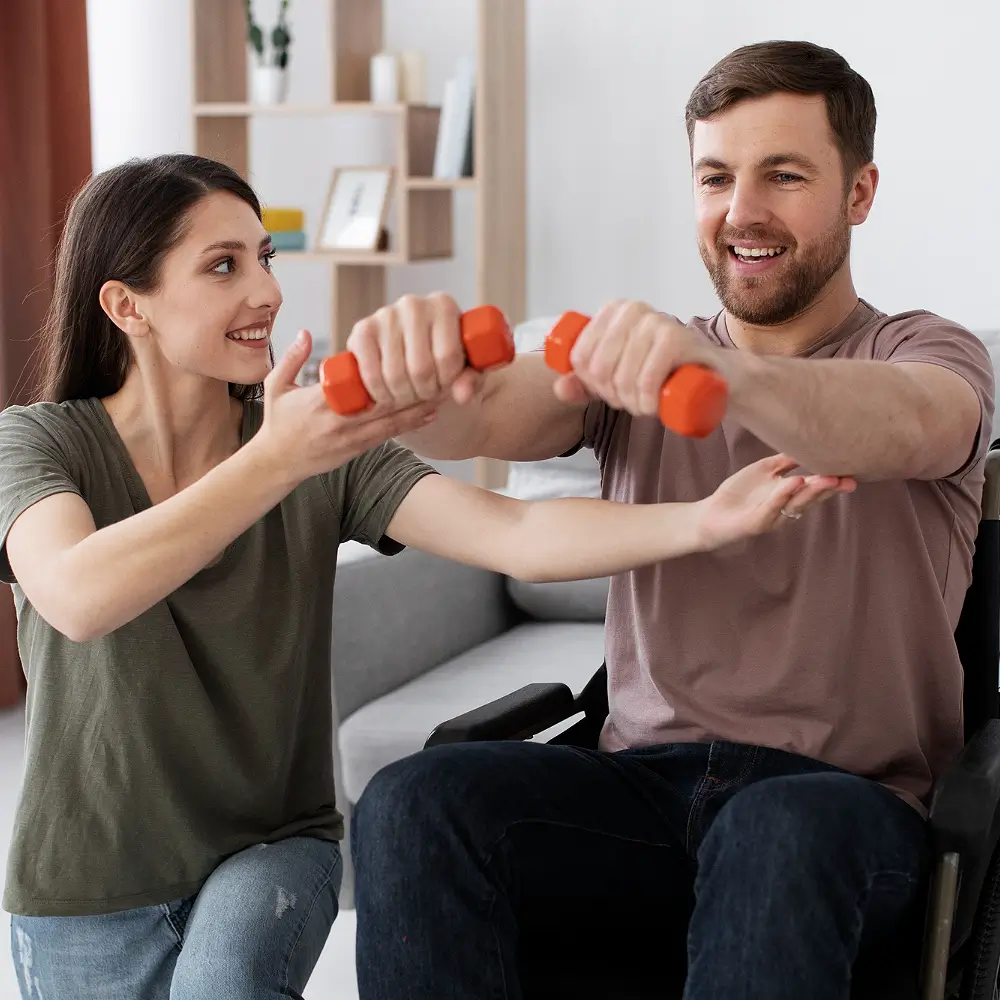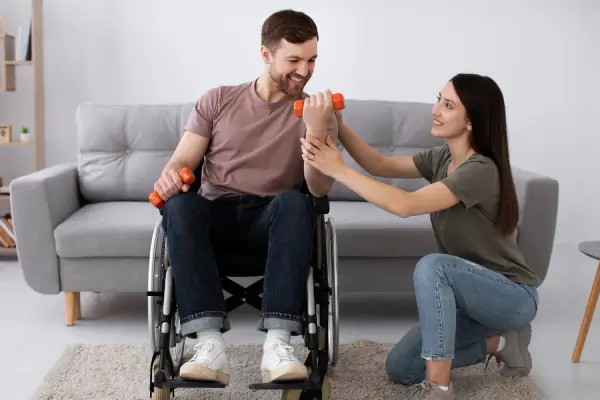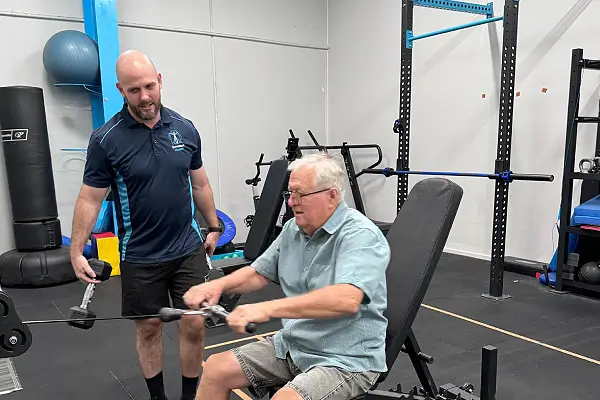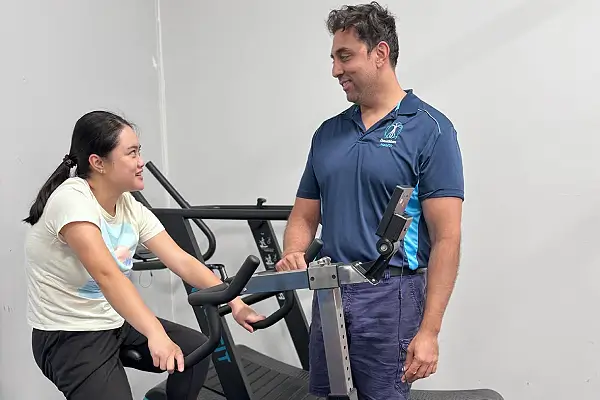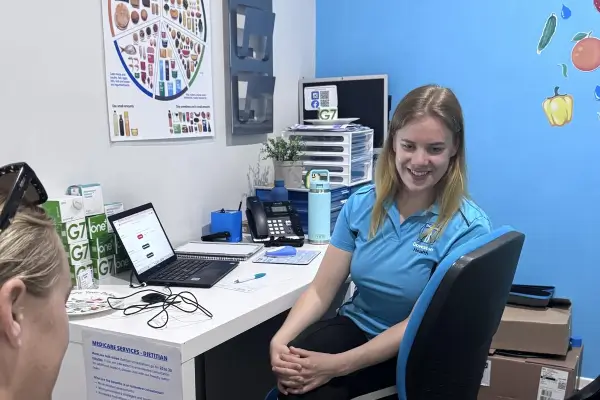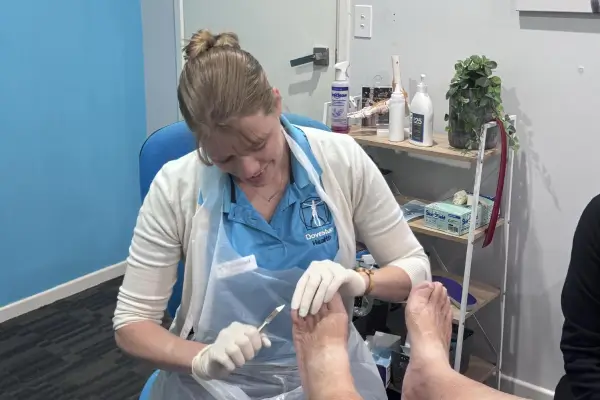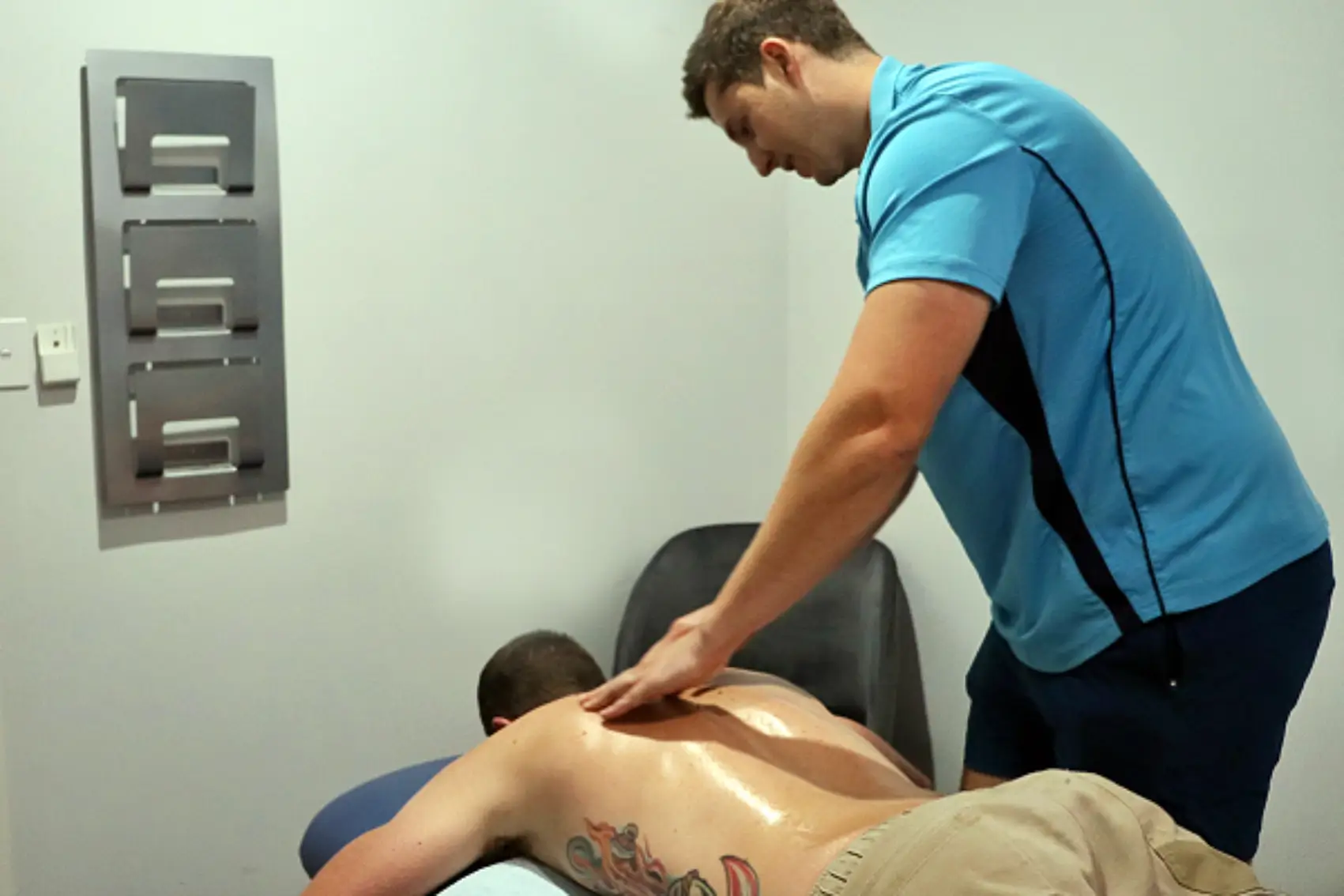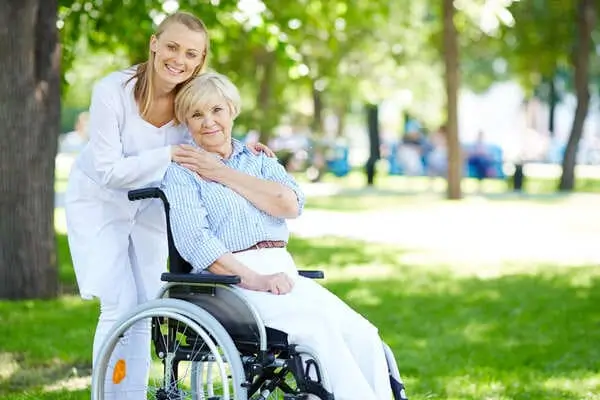What is an NDIS Physiotherapist?
NDIS Physiotherapists are experts in the movement of the human body and its structure. They work with people of all ages to help treat or manage a broad range of disabilities. We work often with NDIS as it is used to help individuals access our services for a better future. Our goal is to create a comfortable and enjoyable environment where we help you increase your quality of life.
When seeing a Physiotherapist here they will assess your current level of function and chat with you about what their plan would be for you to help improve your quality of life. Once consent is given, we will then create a service agreement plan to send to your plan managers for approval.
How can we help our NDIS Participants?
Many disabilities/conditions come with movement and co-ordination deficits and/or pain. Through exercise or hands on treatment we can help improve these deficits and eliminate pain. In doing so you can increase strength, balance and your ability to move without being in so much pain. Allowing you to participate more in the things you love doing.
Musculoskeletal injuries caused through poor movement patterns and strength due to disability:
- Tendinitis/tendinopathy
- Any tears (e.g. ACL & Rotator Cuff)
- Fasciitis (e.g. plantar fasciitis)
- Bursitis
- Bone fractures
- Tight neck/headaches
- Pelvic floor issues
- Pre and post orthopaedic surgeries (e.g. total hip or
- knee replacements)
Neurological Injuries:
- Stroke
- Parkinsons Disease
- Multiple sclerosis
- Autism spectrum disorder
- Motor neurons disease
- Cerebral Palsy
Other:
- Balance
- Pain management (new and long-lasting pain)
- Strength and Co-ordination
Participant Success Story
Jacky, a 27-year-old female with autism spectrum disorder (ASD) level 2 came in 1 year ago to help with her shoulder and lower back pain. The shoulder pain included sharp pains across the top of her shoulder and into her neck when she moved her arms up, where her back pain was across the whole lower back when she picked something of the ground and slept on her back. She expressed this was affecting her employment which she looks forwards to each week. In her initial consultation Jacky was assessed and diagnosed with rotator cuff tendinitis and lower back disc bulges. During the assessment it was noted that these injuries had been caused by poor muscle tone and coordination which is common in ASD. This consult also included education on these two injuries, rehab time frame and what to expect during.
Over about 12 weeks we managed to successfully treat these injuries and have continued to further improve her co-ordination and muscle tone to help limit further injury/aggravation. She is currently back working with no pain and attending Doveston Health once a week.
Funding
- All services (travel, report writing and treatment) are billed under the one code at the same price, based on the service.
- Travel will be billed for hydrotherapy and home visits according to time taken to and from clinic.
- All invoices have the patient’s NDIS number, plan dates and length of appointment as per NDIA requirements
